What Happens When You Use Too Much Lip Balm, Doctors Say
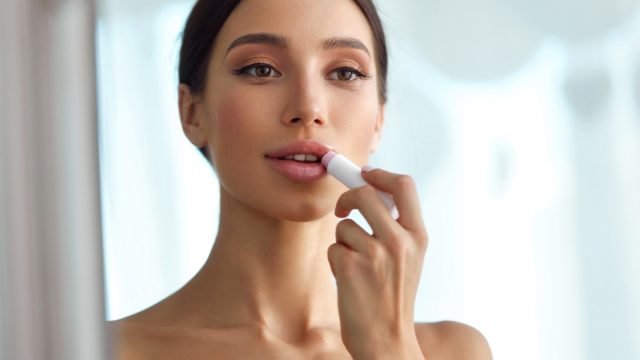
If you have chronically dry, cracked lips, lip balm can offer a soothing escape from your symptoms. However, some experts warn that relying too much on lip balm can cause bigger problems, actually exacerbating your discomfort.
If you carry your lip balm everywhere, regularly applying and reapplying, you should watch for certain signs that your skin-soothing habit is causing more harm than good. Read on to learn what happens when you use too much lip balm, and to find out which products are most and least likely to cause a problem.
READ THIS NEXT: The Best Lipstick Shade for Your Zodiac Sign, According to Astrologers.
You could become dependent, some experts say.
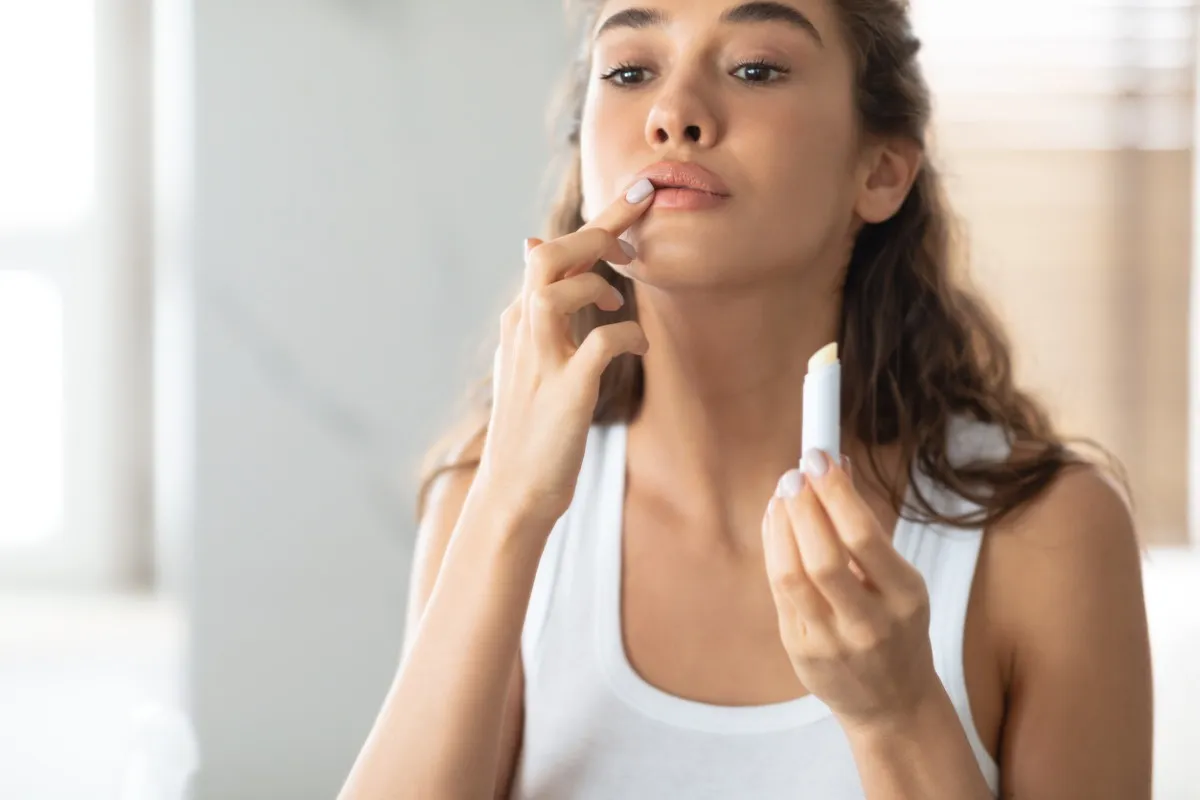
Having chapped lips can be unpleasant and uncomfortable, especially if you’re tempted to pick at the dry skin. Using lip balm can help you soothe that sensitive skin and avoid any further damage. However, many people find that they need to keep reapplying for optimal results, and some experts say that this repetition can actually cause dependency on lip balm products.
“It can definitely be habit-forming,” dermatologist Melissa Piliang, MD, writes for the Cleveland Clinic. “Applying lip balm soothes your lips, feels good and can be very comforting. That can lead to an unconscious habit that helps with stress or anxiety—kind of like twirling your hair or biting your nails,” she said, describing the habit as a “psychological crutch” for some.
READ THIS NEXT: Sandra Bullock Swears by This $7 Drugstore Product for Youthful Skin at 57.
Some products can make your lips even dryer.
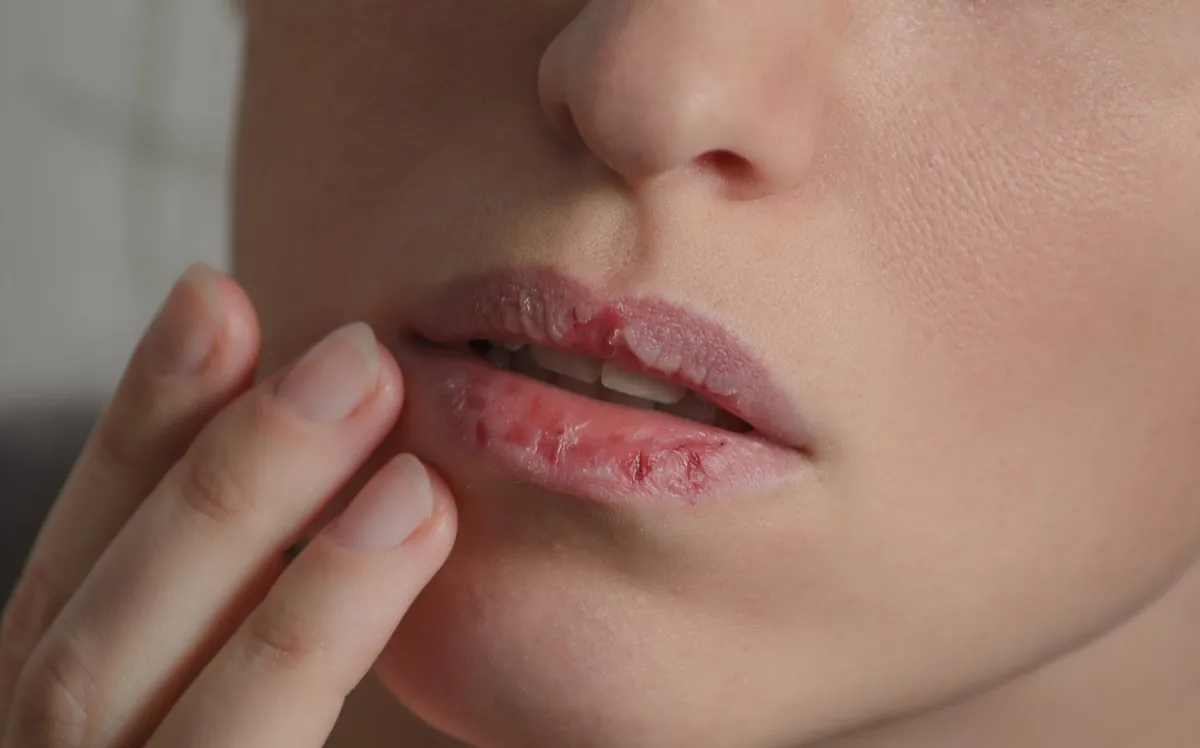
Depending on their ingredients, certain lip balms can actually make your lips drier and more irritated. To avoid this, the American Academy of Dermatologists (AAD) recommends using products that contain certain ingredients over others. They recommend avoiding products that contain camphor, eucalyptus, lanolin, menthol, octinoxate, phenol, propyl gallate, and salicylic acid in particular.
Similarly, lip balms with fragrance or flavoring—in particular cinnamon, citrus, or mint—are likely to further irritate your lips. “If your lips burn, sting, or feel uncomfortable when you apply a product to your lips, it means you’re irritating your lips, so you want to stop using that product,” AAD experts explain.
Look for these ingredients when buying a balm.
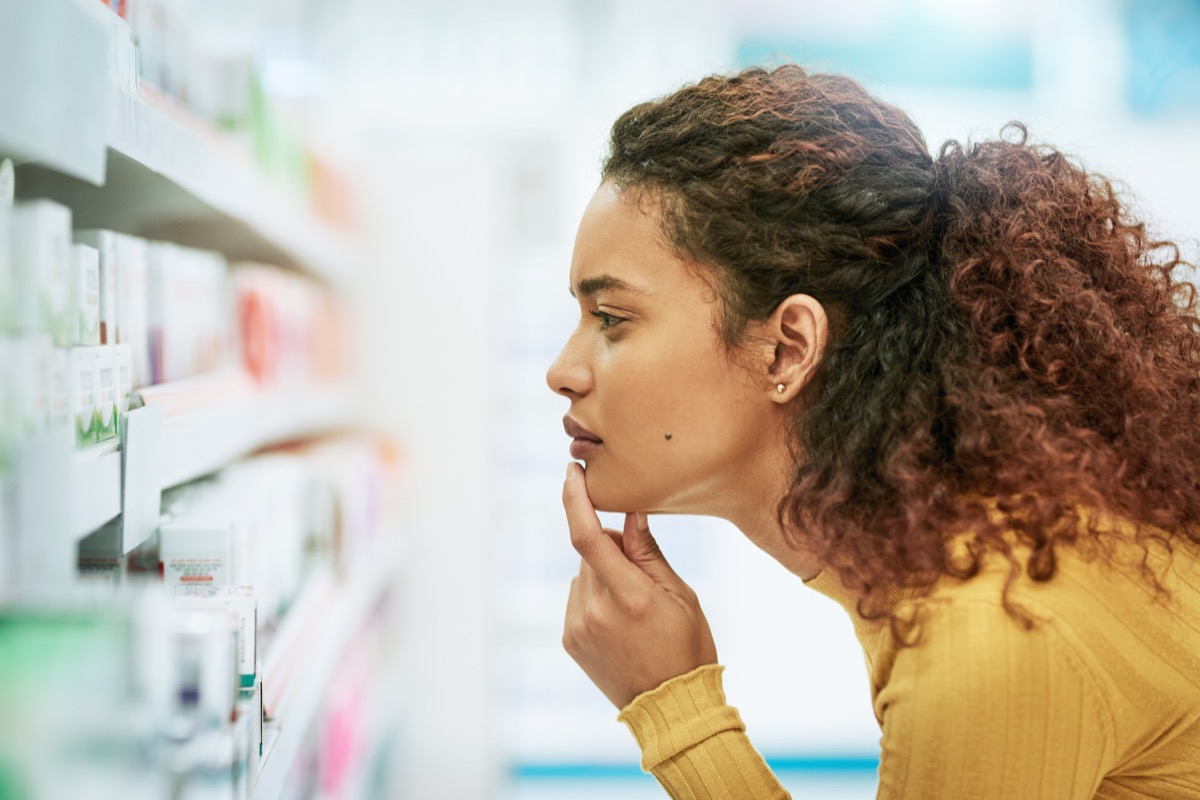
All this doesn’t mean you should swear off lip balms entirely—many products can be part of a healthy regimen for your lips. “While some ingredients can irritate dry, cracked lips, others can help them heal,” AAD experts write.
They note that products containing castor seed oil, ceramides, dimethicone, hemp seed oil, mineral oil, petrolatum, shea butter, zinc oxide, and white petroleum jelly are all likely to improve your lips without any added irritation. Products that are fragrance-free and hypoallergenic are your safest bet, they say.
For more health news sent directly to your inbox, sign up for our daily newsletter.
Try these tips to keep your lips moisturized.
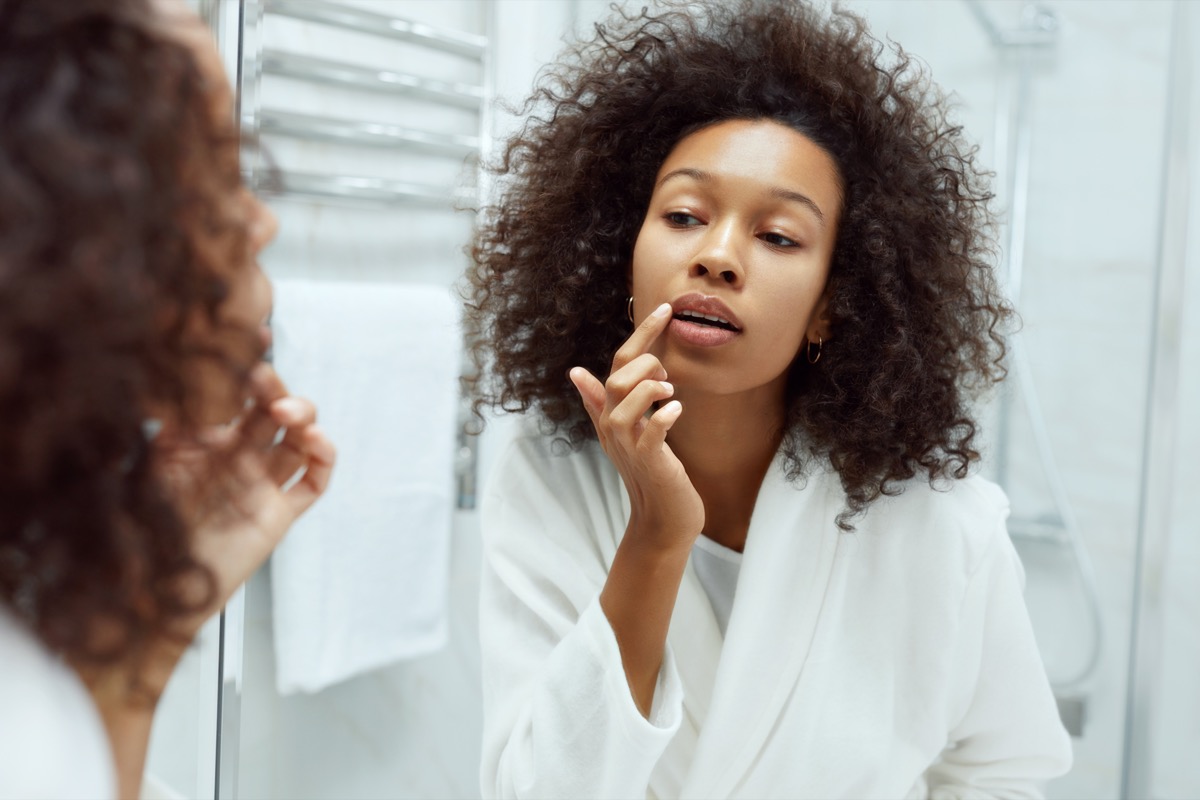
Though lip balm can help improve already cracked lips, the AAD suggests several ways to prevent chapped lips before they develop. First, be sure to include your lips when you put on sunscreen—you can do this by choosing a lip balm with an SPF of at least 30. Drink lots of water to keep your sensitive skin hydrated, and consider using a humidifier at home if you tend to have chronically dry skin.
Many people develop dry lips because they frequently lick their lips, the AAD adds. “When lips feel dry, it may feel natural to wet them by licking them, but this can worsen the problem. As saliva evaporates, your lips become drier,” they explain. Instead, moisturize your lips at night with a non-irritating balm, and reapply every two hours when you’re outdoors in the cold, in dry heat, or in the sun.